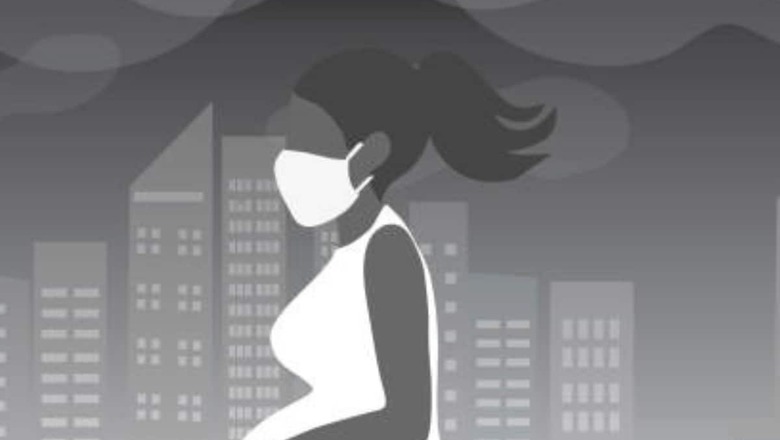
views
Certain parts of India such as Delhi and Mumbai are grappling with severe pollution issues and the current air quality in these cities is an absolute matter of concern.
Here is a rewind into understanding what air pollution is- Air pollution occurs when harmful substances, including particles, gases or matter, are released into the air, resulting in a decrease in air quality. Most air pollutants originate from sources such as power plants and factories that burn fossil fuels like coal, oil and natural gas, road traffic, waste management, excessive fertilizer and pesticide use, and the burning of agricultural waste, coal or wildfires. Air pollution can be a cause of several health issues.
Dr Ruchi Bhandari, Senior Consultant, Obstetrics & Gynaecology, Max Smart Super Speciality Hospital, Saket, says, “Air pollution can cause serious health and environment hazards to pregnant women and unborn babies with long-term health consequences to children and all other living beings.”
She further added, “Exposure to air pollution throughout the first 1,000 days of life (from conception to the second year of life) may be particularly important for children’s long-term health. In addition to serving as indicators of previous exposures, changes in biological markers, such as DNA methylation and telomere length, may contribute to the relationship between air pollution and illnesses associated with it. Air pollution may indirectly harm lung development by causing low birth weight, preterm labour, early or miscarriage, sometimes stillbirth, or improper immune system development.”
Dr. Bhandari also shed some light on the fact that the major impact of air pollution is pregnancy during the prenatal period may interfere with organ development and organogenesis pollutants in the air contain particles known as PM2.5. These particles are so small and can be carried or pass into the lungs and enter the bloodstream, which increases the risk of heart and respiratory disease, strokes and lung cancer.
She stated, “During pregnancy due to air pollution, a woman’s body stores harmful chemicals from the air, passing them to her baby during pregnancy and breastfeeding.”
While it may seem like pollution is something salvageable and momentary, it is pivotal to note that it can have serious health implications on the mother’s health as well as her child’s.
Dr. Ankur Sethi, Head – of Paediatrics & Neonatology, Yatharth Super Speciality Hospital, Noida stated, “As we speak about the hazardous effects of air pollution on pregnant women and new-borns, the current air pollution, specifically, can adversely affect a mother’s health in various ways, leading to lung problems, breathing difficulties, and blood-related issues, all of which can have negative consequences for the baby.”
He added, “Concerning the baby’s health, infants who are exposed to air pollution through their mothers during pregnancy may develop birth defects, congenital issues, premature births, and low birth weight. These problems can arise due to the impact of air pollution on the developing fetus. Therefore, it’s crucial to recognize that air pollution can significantly harm both the mother and the newborn. Efforts should be made to curb air pollution, and preventive measures should be implemented.”
The Experts also shared some tips on the kind of protection pregnant women and children can take during such times. Read on-
- Air pollution is a global problem and requires action by individuals, families and also by communities and governments.
- It is advised that pregnant women limit or prevent exposure to air pollution, especially during the early and late stages of pregnancy. Try to stay indoors as much as possible when air quality is bad as of Delhi NCR and if not possible use N – 95 masks throughout outdoor and indoor areas.
- If possible, consider air purifiers with high-efficiency particulate air (HEPA) filters which are effective against indoor air pollution.
- Healthy diets and lifestyles with proper hydration can reduce the overall impact of air pollution on pregnant women and on children.
- Delhi NCR air quality deteriorated to a poor category on Thursday (2nd Nov 2023). Thus in view of rising air pollution can have negative health consequences leading to preterm birth, Low birth weight, stillbirth or congenital abnormalities, and High BP.
- Nitrate, sulphate, black carbon and aluminium are among the pollutants in Delhi’s air that worsen asthma attacks, make breathing difficult, and cause birth defects, headaches and Alzheimer’s disease.
It is very important to take necessary precautions, especially at a time such as this when the air quality is only worsening day by day.




















Comments
0 comment